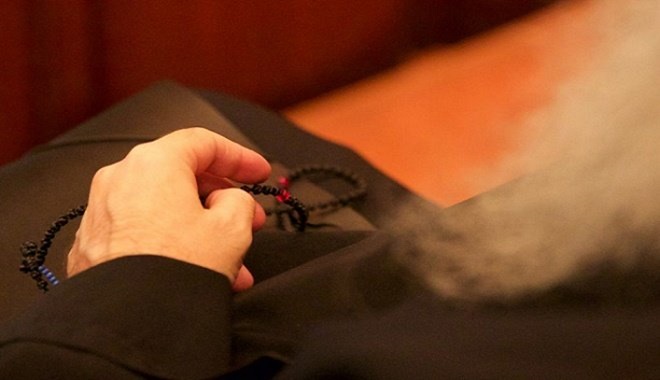The Gift and Pain of Mystical Faith
22 November 2021Those who, at some period in their life, have had a routine for prayer, spiritual study and participation in the services of the Church and then somehow, because of some ‘concerns of life’, lost it feel a void. This is why, when they’re asked ‘How’s it going? What are you doing?’ They sadly reply ‘Nothing at all’.
It appears that ‘spiritual people’ have different senses from ‘carnal people’, who function on the basis of ‘Eat, drink and be merry for tomorrow we die. In the case of the latter, their concept of the ‘Kingdom of Heaven’ is slight or non-existent, which makes it impossible for them to understand the condition of others who aren’t like them. There has to be a breadth of spirit and robustness for us to appreciate something which is beyond our experience.

The pain which derives from the absence of God’s grace is commensurate to the joy and fulness which our being felt when it was present. Of course, grace is not determined by any effort on our part such as a routine for prayer and study, church attendance or the struggle to implement Christ’s commandments, (given that grace [from Latin ‘gratia’, a kindness or a favor] is a gift), but through these things we demonstrate our desire that it should come upon us.
We, as people, have freedom as a gift from God- in accordance with being made ‘in his image’- but, by the same token, God, as a Person, is also free. Just as we aren’t forced to do something by God, neither is he compelled by us. It may, however, be the case that his love will be withdrawn, if he deems it to be in our best interest. These two freedoms, in combination, provide the relationship which brings joy.
From the above, it can be understood that, in the Orthodox faith, we have a living relationship with God, one that is forged, breaks down, grows or diminishes, just like any other. It may be that the concealment of grace is an invitation to particular people to seek him out and, in this way, to express their desire that they want him in their life.
The void the soul feels over the absence of grace shows that it knows, that it’s experienced it and that it misses it. The pain of its absence is the motivating force which will activate concealed powers to search for the ‘heart’s beloved’ who ‘stands at the door and is knocking’ (Rev. 3, 20).
Just as human relationships aren’t always what they seem, but also hide secrets between those who love, secrets which are inaccessible and unknown to those on the outside, so every relationship with Christ, given that it’s personal and unique (Rev. 2, 17) conceals its own mysteries.
But if this relationship is in the Church, and therefore real, the fact that it’s special is not isolating but unifying, in terms of the other members of the same body. This is why it grows naturally and matures without spiritual side-effects. This is why personal faith, within the Church as the Body of Christ, is a gift which has been granted to us and which we must preserve until the time comes when it’s no longer necessary; the time when we meet Christ ‘face to face’ and will live in joy throughout the ages with all the saints ‘from all over the world’.






